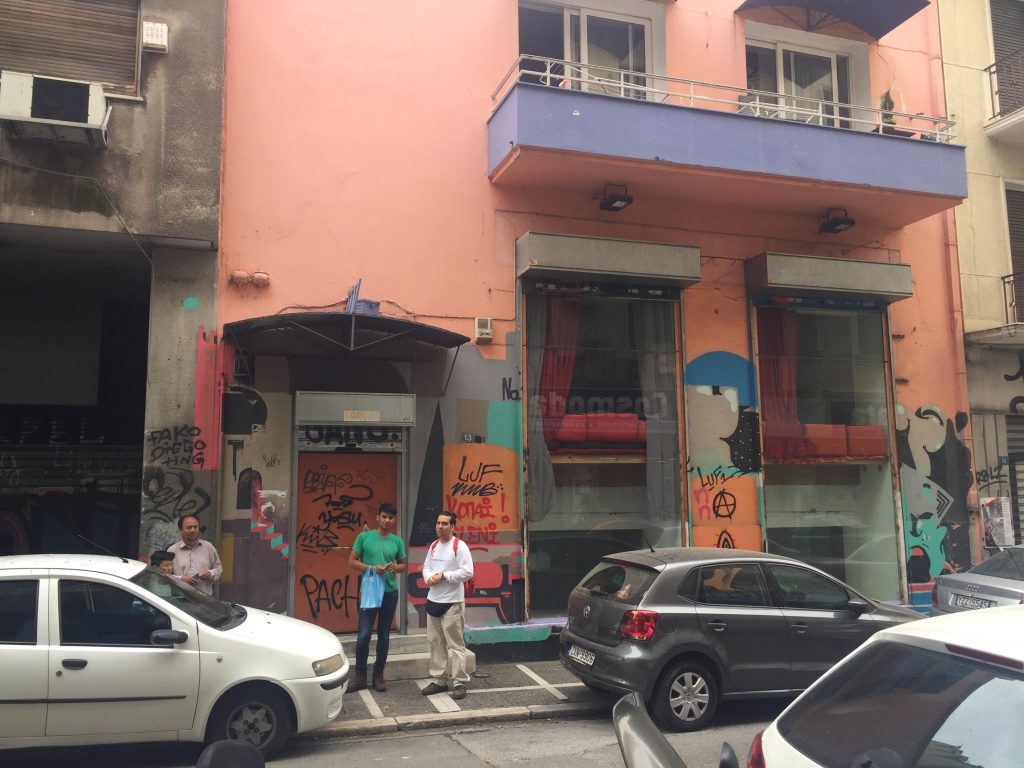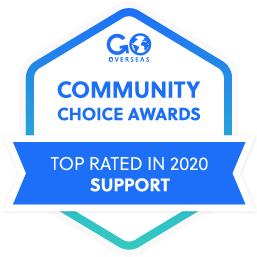The story behind how a CYAer became a volunteer German Teacher in Greece
On a sunny afternoon in Pangrati, we caught up with current CYA student, Gretchen Bednarz, to have a chat about how she has been spending her free time; teaching German at a community center and shelter for refugees.
Gretchen is studying at the University of Pennsylvania in Philadelphia and is from the suburbs of Philadelphia.
In high school, I took German because I’m part German and thought I’d be a cool way to connect with my heritage. I fell in love with the language and the culture, loved learning it, never felt tedious to me.
She received an award to study in Germany when she was 15, she was interviewed in German, it was intimidating but she got it! She stayed with a host family in southern Germany (Bavaria).
That experience shaped what I wanted to continue studying in college… different countries and cultures and how they interact with each other.
As Gretchen went further into college she knew she wanted to study abroad again. She was thinking of going to Germany to further improve her language skills but, she was also interested in seeing something new.
Greece is really interesting right now in terms of international politics, but it’s always been interesting! I found out about that here! I really didn’t know much about the history behind it, there were so many things I didn’t know. But also as a child, I’ve always loved Greek mythology ( I know that’s a very cliché reason of coming here) there’s a picture of my sister and me wearing togas (for world culture day in the scouts in 2004). So coming to Greece also felt like fulfilling a life-long dream, to see the place that was the genesis of that. This crazy juxtaposition of new and old.
Orange House is a charity project in central Athens which provides housing, support, activities, professional assistance and a safe space for refugees to relax and meet people.
Gretchen started volunteering at “Khora” (a similar but bigger organization to Orange House) which serves meals to many disadvantaged people. Her desire was to teach German and through word-of-mouth, she heard that Orange House was in desperate need of a German teacher. She met the people running the project and soon developed a teaching schedule.
It was all very serendipitous, I could only meet in the morning before classes and I wanted to teach beginner or intermediate, and that was the exact level they needed. I teach students of all ages. I don’t know specifics, there are no questions asked. A mother will come in with her 5-year-old daughter, which is really fascinating to see. There’s middle-aged men, teenagers, pre-teens.
Projects like Orange House are in desperate need of teachers and there’s a high demand for German because a lot of people are applying for transfer to Germany.
German classes (higher level) are only offered on Fridays. On Monday to Thursday, everybody is looking for something to do. They all want to work on their skills and many students of all ages/levels try to come to the class to sit in and learn. You get people that don’t know German at all and people who are probably as good as I am, all in the same class. And that was a problem for me at first because I didn’t know how to accurately cater to all their needs, but I developed a system now.
Determined to meet the different needs of the learners, Gretchen quickly developed her own system! She now runs a class on Monday to Wednesday between 11am -12pm for beginners.
It was really disruptive when people would come in and speak German and the others would say ‘what are you saying? I’m so lost!’ So what I did was arrange the beginners class and then for the higher level students who still have their Friday classes I developed a short half hour vocabulary session. I’ll usually find a theme or a broad subject and pick a bunch of vocabulary that’s really important to know, and we’ll go over it, have fun with it, and play games because no matter what level of language you’re at you can always use more vocabulary. It has been working really well so far.
Gretchen recalled her first class, which only had one student. Her student assured her that more people would come soon. Indeed the very next day she had 17 students!
It’s intimidating and it really put me out of my comfort zone, but that’s what I was looking for. Something to challenge me and help me grow while still being able to offer a unique skill that I have. It’s rewarding to see them consistently show up for you prepared and eager and you show up for them.
For Gretchen, teaching German was a completely new experience.
Right now I’m’ taking beginner’s Modern Greek. After a few classes of mine, I would come into my Greek class and I would see my teacher using the same techniques that I would use, it’s so interesting to be able to see both sides of learning a language.
We asked Gretchen about her understanding of the refugee crisis and how volunteering at Orange House has influenced her perspective.
The reason I felt very drawn to volunteer and try my hand at teaching German is that I know it’s such a big problem. There are a lot of people trapped in Greece trying to go different places, I thought it’d be interesting to try to put faces to the things that you read about and things you study and hear.
I knew it would be a new situation for me. You see a very beautiful side to it because you form relationships and you meet individuals. You get to teach something to someone and you learn about yourself. They are the most eager students I’ve ever seen in a classroom. They are very attentive, they want to learn, they practice outside of class they want to show you what they’ve learned. You hear about the macro stuff in the news, this is about the individual.
At the end of the conversation, it was clear that Gretchen managed to engage with local communities in meaningful ways, creating longlasting bonds with Greece.
When I came to Greece I knew I wanted to engage with the community and challenge myself in a way I hadn’t before, it gave me a new responsibility, something to add to my studies. It was very enriching. They say teaching is hard. This has made me more flexible and adaptable, and it’s nice. I have CYA, I have my host family, so that’s another group that makes you feel like you belong, it’s another root that you invest in, and hope that you’re contributing somehow.





